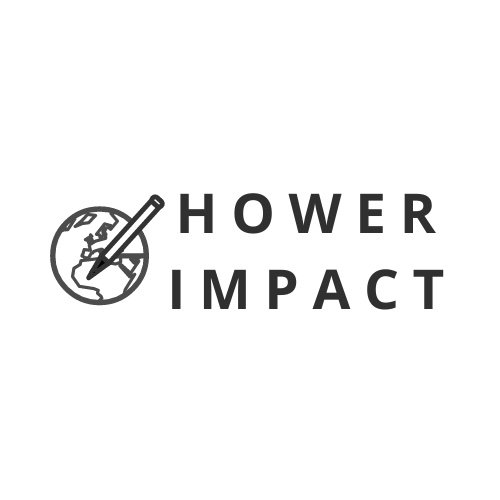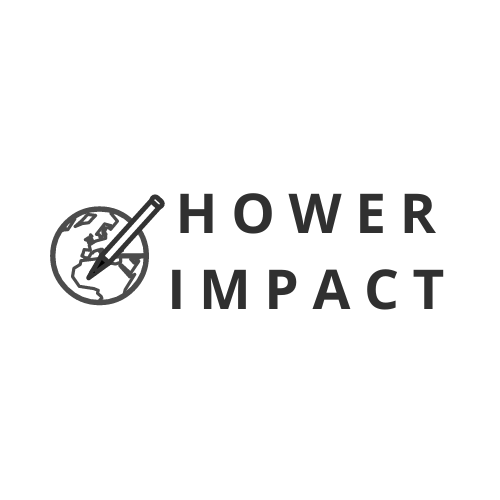Coach Angela Chang on what to do when you’ve been let go
After a few years of a booming corporate sustainability job market, 2023 has brought with it an onslaught of layoffs at companies across industries. While tech has been hit hardest, many purpose-driven professionals across sectors now find themselves out of work.
For folks working in sustainability, ESG and social impact, being let go when we’re no longer wanted or needed can feel deeply personal. We see our work as a calling more than just a job, and our identities are strongly enmeshed with what we do.
If you’ve recently lost your job for whatever reason, I want you to know that you aren’t alone. There are strong arms around you. Our industry is meant to be different, and I want to do all that I can to help you. Again, I’m not a coach or recruiter — I’m just a sustainability professional who gives a damn.
As a start, I recently caught up with my leadership coach, Angela Chang of Keep the Change, to ask her what advice she gives people who’ve lost their job and are searching for their next gig. Here’s how it went:
Mike Hower: What advice would you give to someone who was recently laid off for emotionally dealing with it?
Angela Chang: Losing your job is a big deal. You're losing friends in coworkers, financial stability and even your sense of purpose. Whatever you might be feeling — sadness, grief, anger, frustration — let yourself feel it. Don't try to minimize, assign blame, or ruminate on all the reasons "why." Have a regularly scheduled scream or cry session, beat up some pillows, compose a song. Then take time to refocus on what gives you joy and energy. Get yourself in the healthiest mental state, so when the next perfect job comes along, you'll be ready for it.
If you've been laid off or fired, it can be quite traumatic, with long lasting effects to your confidence and sense of self-worth. I've had clients who were top performers — with ivy educations and work accomplishments rivaling Steve Jobs (well, not exactly) — get fired or laid off. It happens. Don't take it personally. There are many reasons employees are fired or laid off — many of them beyond your control. Reframe your mind to think "that didn't work out for me" versus "I didn't work out for them."
All the thoughts, feelings, blame, anger, should have-could have-would haves. Write it down. And then write it down again, with dates and times, whenever it comes up again. In being vigilant about writing it down, two things might happen: First, you'll eventually get tired of writing down the same things over and over, day after day. Second, you'll gain awareness of what thoughts or situations trigger the rumination. And when you start to ruminate, pause, take a breath and picture a big red "STOP" sign. Then redirect your attention to another activity. But if you ever find yourself in a state where you can't pull yourself out, feeling hopeless, or uninterested in things you usually like — a coach or therapist can be a safe space to help manage your feelings.
Hower: What are some mental tools for facing rejection and failure in the job hunt?
Chang: Understand your relationship with rejection and failure. If you're the type who shies away from critical feedback, puts a lot of pressure on yourself to "have it all buttoned up/figured out/planned," or are deeply affected when someone disagrees with your your perspective or opinions, you may have a deeper relationship with failure and rejection than what's on the surface. In coaching, we try to explore each person's "mental models." Think of mental models as an internal belief system or the many "talk tracks" running inside our heads — to protect ourselves from mental or emotional harm. Mental models are built up through years of managing complex relationships with friends or family, your internal beliefs, or the value systems you grew up with. Sometimes these mental models serve us — like when perfectionists do everything so perfectly so there's no noom for criticism, or they can derail us — when perfectionists spend so many hours on minute details, the job doesn't get done on time. Taking some time to step outside of yourself and diagnose your "talk tracks" and ask "who's talking here?" can help you re-frame the talk track to one that serves you in your situation.
Accept rejection as part of the process. It's easy to second guess yourself when you think you're a great fit for a role, and you're slapped in the face with a rejection. Think of all the people you've ever met on the job — it's unlikely that all of them are in their positions because they perfectly matched a job description, or "aced" an interview. There are many reasons candidates are not selected. I've seen hiring managers simply take the first 20 resumes they received because there were so many. Recruiters are sometimes forced to post positions even if there's an internal candidate ear-marked. See rejection and failure as part of the process to eventually succeed. Reset your expectations that for every 20 (or however many) jobs you apply for, you may only get called to interview for one, and 100 to land the role.
Use it as an opportunity to hone in on what you need to get the role you want. Ask for feedback from recruiters, hiring managers and members of your interview panel for feedback. And while they may not always be transparent around the reason you weren’t selected, making it a practice to always ask for feedback will give you enough data to see if any patterns emerge around technical knowledge, experience, or leadership skills — you may need to focus on first.
Hower: Anything else you would like to add?
Chang: I've coached dozens of high performing leaders — from CEOs, founders of startups, to new grads just finding their way. The key difference to those who succeed and those who don't, is an unrelenting desire to keep trying. If you've never been scared, felt rejected, or faced a room with everyone telling you "no," you're likely not taking the risks you should. Remember that the feeling of failure doesn't mean you're a failure. It means you've opened a door to something better. Remember - like finding a life partner, the perfect home, or the perfect thermostat setting — all it takes is one. Keep going.
Angela Chang is a Certified Executive Coach and founder of her executive coaching practice, Keep the Change. She holds a Master's of Science in Learning and Organizational Change Management and Coaching Certification from Northwestern University. She has over 15 years of internal, and management consulting experience in talent, leadership, and organizational development across many industries. She is currently Principal Consultant at Amplify People Strategy Consulting, a firm focused on unlocking talent potential in organizations of all sizes.


